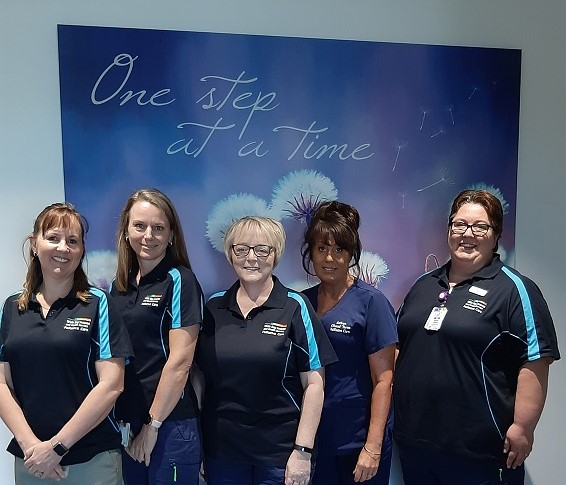
Wide Bay Hospital and Health Service has highlighted the importance of having an advance care plan (ACP).
Highlighting the issue during National Advance Care Planning Week from 21 – 27 March 2022, the service said the document was just as important as a will for when the time comes.
While unwell, we may not be able to communicate our wishes, making this document an important one to communicate our values and preferences related to health and personal care.
Advance care planning means thinking and making choices now to ensure that the treatment and care received in the future is in line with your wishes.
Wide Bay Hospital and Health Service (WBHHS) Chief Executive Debbie Carroll said WBHHS had submitted about 5900 ACP documents to the Queensland Office of Advance Care Planning since 2016.
“We’re eager to see this number grow, for your sake and the sake of your loved ones,” Ms Carroll said
“It’s never too early to start advance care planning, even if you are fit and healthy, but it’s particularly important for our older and frail residents, or people with a chronic illness, an early cognitive impairment such as dementia, or are approaching their end of life.
“It involves thinking about your values and preferences for care and acceptable outcomes, talking about them with others, appointing someone to make decisions on your behalf and documenting everything.
“As hard and uncomfortable as the conversation can be, it will save your loved ones from having to make difficult decisions on your behalf without knowing what you would have wanted.”
Ms Carroll said WBHHS models of care such as the specialist palliative care in aged care (SPACE) service had a strong focus on increasing the number of advance care plans in the region.
“Our SPACE team encourages residents of aged care facilities to discuss their healthcare and quality of life choices with those closest to them and those they trust, so they won’t have to make difficult decisions on their behalf without knowing what they would have wanted,” she said.
“Many people find this process easier than they expected, and it gives them peace of mind.”
Completed documents should then be shared with your substitute decision maker/s, your carer/s, your doctor/s, your solicitor and the facility where you receive treatment and care (for example, hospital or residential aged care facility).
Your documents can also be shared with Advance Care Planning Queensland, enabling them to be made available at all public health facilities in Queensland, as needed.
It is important to remember you can review your plan at any time – your decisions are not set in stone and may need to be updated for any number of reasons including a change in your medical circumstances, a change in your living arrangements, or simply a shift in your beliefs or values.
Ready to get started?
Advance care planning doesn’t need to be complicated, but it does require careful consideration.
Visit the My Care My Choices website for information on ACP, advice on completing ACP documents and resources to help guide the planning process.
Advance Care Planning documents may include any of the following:
- Advance Health Directive: a legal document that records your decisions about future health care in specific situations, for a time when you are unable to communicate. It needs to be signed by your doctor and your signature must be witnessed by a Justice of the Peace/Solicitor.
- Enduring Power of Attorney: a legal document in which you nominate a family member or friend (you can nominate up to three people) to make important health and/or financial decisions for you when you are unable to do so. Your signature must be witnessed by a Justice of the Peace/Solicitor.
- Statement of Choices: focuses on your wishes, values and beliefs. Can guide decision making but cannot be used in the same way as an Advance Health Directive, as it is not a legal document.
- Acute Resuscitation Plan: guides clinical decision making should an acute deterioration occur. Completed by your doctor or a senior hospital doctor.
Acute Resuscitation Plans can only be accessed by your doctor or public health facility.
Advance Health Directive, Enduring Power of Attorney, and Statement of Choices can be completed with a solicitor or are available online for free here.
You can also contact the Queensland Office of Advance Care Planning on 1300 007 227 for more information.
Other stories: Pathology ‘big cat’ arrives at Bundaberg Hospital




